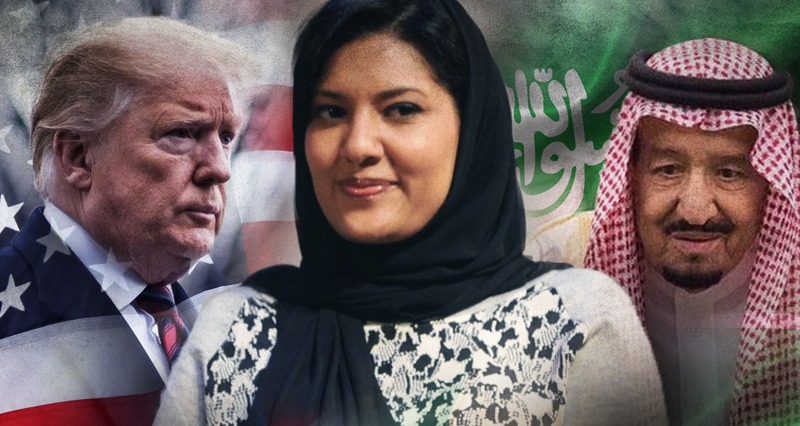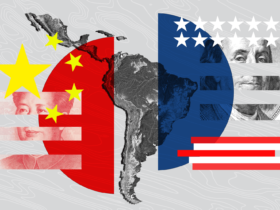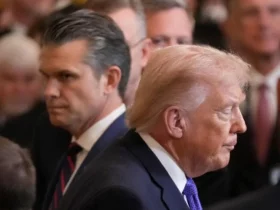King Salman bin Abdulaziz Al Saud of Saudi Arabia has made the kingdom’s first-ever appointment of a woman – Princes Reema bint Bandar bin Sultan bin Abdulaziz Al Saud – to the position of an ambassador. She is now heading the embassy to the US.
King Salman issues a Royal Decree appointing Princess Rima bint Bandar as Ambassador to the United States with the rank of a minister. She becomes the first woman ambassador in the Kingdom’s history. #SaudiArabia
At a time when dark clouds overshadow the alliance between Washington and Riyadh, this appointment, which is so offbeat for Saudi diplomacy, might prove to be the most original and ingenious way of untangling the crisis in relations between the Saudi Kingdom and the US.
Saudi Arabia is a strategic political and trade partner for the US in the Middle East that is prepared to fulfill Washington’s financial requests unconditionally and to assist the promulgation of the American officialdom’s political strategies in the region. Simultaneously, the Riyadh dollar well is so treasurable for the Americans that they didn’t break off diplomatic relations with the Saudis even after the most horrendous terrorist attack in their history – the 9/11 that had been planned by Osama bin Laden, the Al Qaida leader who held a Saudi passport.
Still the petrous relations between Riyadh and Washington cracked in autumn 2018 after a highly resounding brutal murder of the Saudi journalist Jamal Khashoggi, who was killed on the territory of his homeland’s Consulate General in Istanbul.
The Khashoggi case turned into a solitary instance of an overt political confrontation between Washington and Riyadh, an instance where the US political elite didn’t keep silent. Khashoggi, a Saudi journalist who had fled his native land, managed to establish himself in the US and, according to some well-informed sources, got a residential permit there. Therefore the CIA couldn’t shut its eyes to his violent killing. CIA Director Gina Haspel told Senate hearings that the Saudi Crown Prince, Mohammad bin Salman (MbS) was guilty of the murder. She claimed the CIA had obtained clear evidence to a prior exchange of letters between the Prince and the leader of the group that killed Khashoggi and dismembered his body.
Haspel’s statement called the US-Saudi strategic partnership into question, as some senators demanded that Trump punish the Saudi authorities for the misdeed of this kind but other senators and the President himself spoke out against the severing of relations with a trade partner as important as the Saudis, as they view Riyadh as a dollar pool, in the first place, and a source of huge profits for the American economy.
Washington’s reaction to the Khashoggi case exasperated MbS. He said he felt “betrayed by the West”, warning that Saudi Arabia would look for partners “elsewhere”.
Tensions between the US and the Saudis hiked to the point of flaring up. Trump’s clandestine sale of classified nuclear technologies to Riyadh became one more thunderbolt. Debates on the threat of a Saudi nuclear bomb broke out in the US after Donald Trump‘s conference on February 12 with nuclear industry executives regarding a possible transfer of nuclear technologies to Middle-Eastern nations and a visit to Riyadh that his advisor and son-in-law, Jared Kushner, made the following week.
US House of Representatives Committee on Oversight and Reform even opened an inquiry into a transfer of sensitive American nuclear technologies to Saudi Arabia by Trump’s former advisor Michael Flynn. The Congressmen voiced their concern, saying technologies of this kind might turn into nuclear weapons in the skillful Saudi hands.
Still the gentle touches by the hand of an enchanting lady, the Saudis’ first-ever female ambassador, will hopefully lift all the tensions in the relations between the US and Saudi Arabia.
Against the backdrop of all the recent events, Crown Prince MbS, who is acting on behalf of King Salman, has appointed Princess Reema bint Bandar to the highest diplomatic position.
On the one hand, you could surmise there is nothing special in the move, as Prince MbS is simply trying to gain political scores in the international arena and this isn’t a specially devised political instrument for communications with Washington. The heir apparent to the Saudi throne is seeking to instill his name in history as a great reformer and fighter with corruption. It is exactly for this purpose that he is implementing a range of programs, including the projects that aim to improve the position and rights of women in Saudi Arabia. One of them, Vision 2030, has a bearing on improvements in the status of women, among other things.
It is important to admit that the reforms steered by MbS have brought some tangible fruits, as Saudi women are getting more independence. They begin to take executive positions at banks, universities, and hospitals. They draft new laws in Majlis-ash-Shura, run for offices in local elections, and engage in politics actively enough.
On the other hand, however, by appointing a woman to the position of the ambassador to a most powerful nation in the world MbS is trying to improve his image in Washington – he has to show that the Saudis are not heartless monsters or bloodhounds who dismember their subjects and burn their remains in tandoor ovens, that they are a people respecting international law and keeping pace with the times.
Princess Reema is not a conventional member of the House of Saud. She is the daughter of Prince Bandar bin Sultan Al Saud, a highly influential and strong politician belonging to the ruling dynasty. Her father was ambassador in Washington from 1983 through 2005, the period in the course of which he acquired a strong influence in the upper echelons of power in the US. Some people said he served both as a special envoy of the King and as a boy running errands for the White House while building solid connections with people of clout in America. In addition, Prince Bandar, who is a military, stands at the head of the GIP Saudi foreign intelligence service.
His daughter Reema isn’t a household princess marooned in a royal castle. She stands quite on a par with her pragmatic and influential father. She has earned credit for her efforts to include women in the commercial segment. Also, Reema is a successful businesswoman and an arts patron. As she lived for a long time together with her father in the US, the first school she graduated from was the George Washington University. Forbes magazine placed her on the list of the top 200 most influential women in the Arab world last year.
This is why the reasons for Mohammad bin Salman’s choice are self-apparent. A successful 44-year-old woman like princess Reema can improve the public image of Saudi Arabia in Washington dramatically. What is more, her kinship and a relatively young age are also weighty factors for MbS, since blood is thicker than water. The Crown Prince simply needs highly trusted eyes and ears in the top political milieus in Washington. And he seems to believe the eyes and ears of a refined educated lady are a perfect option.

















Leave a Reply